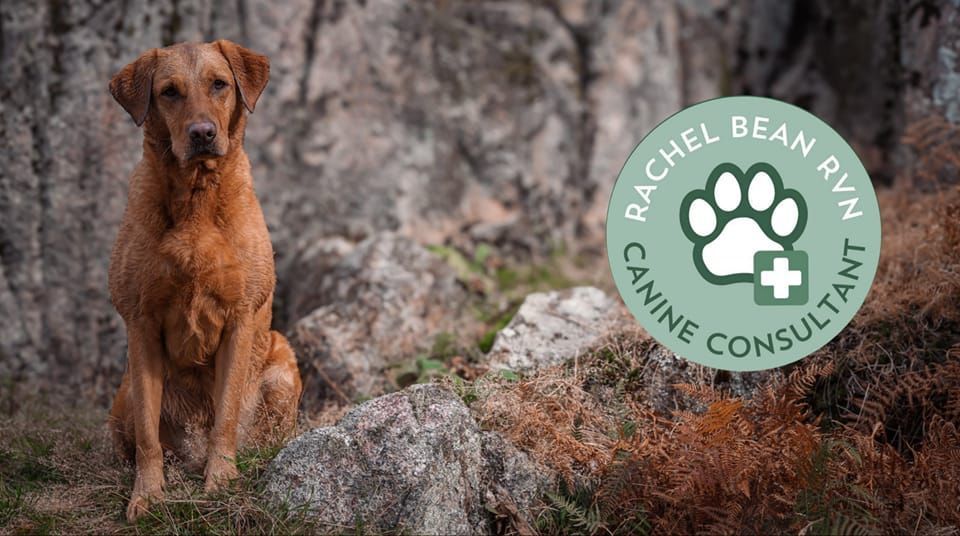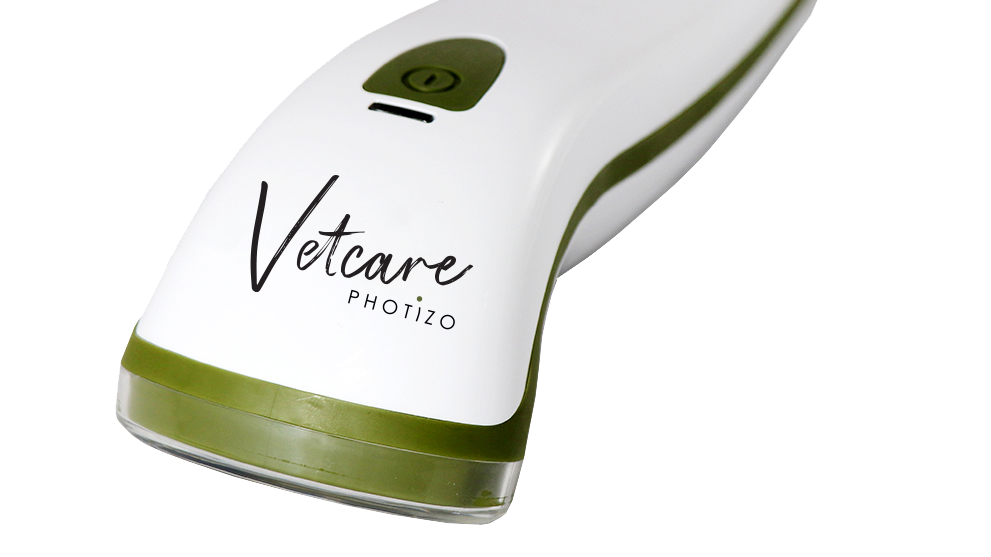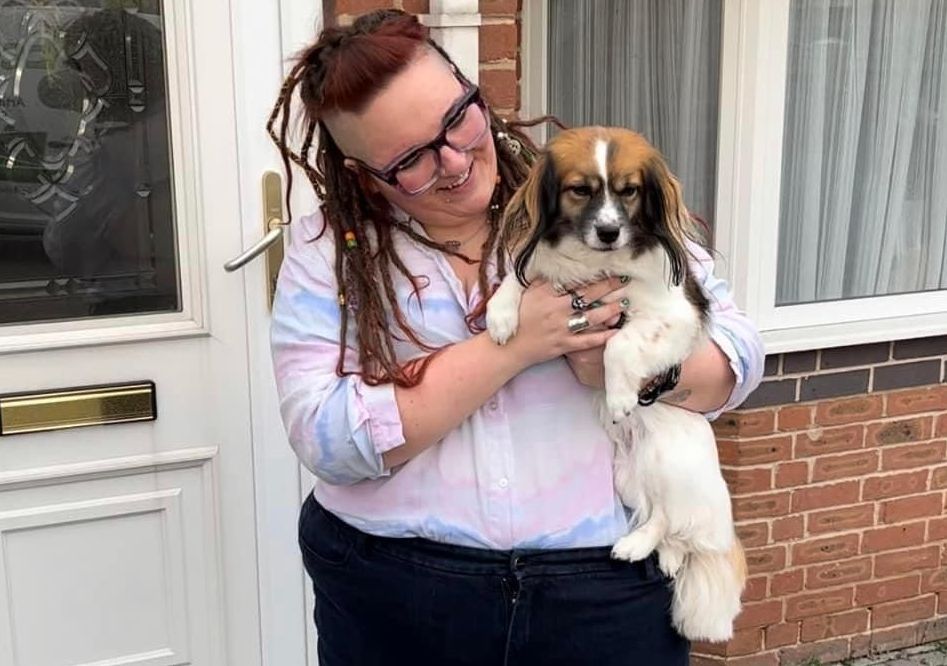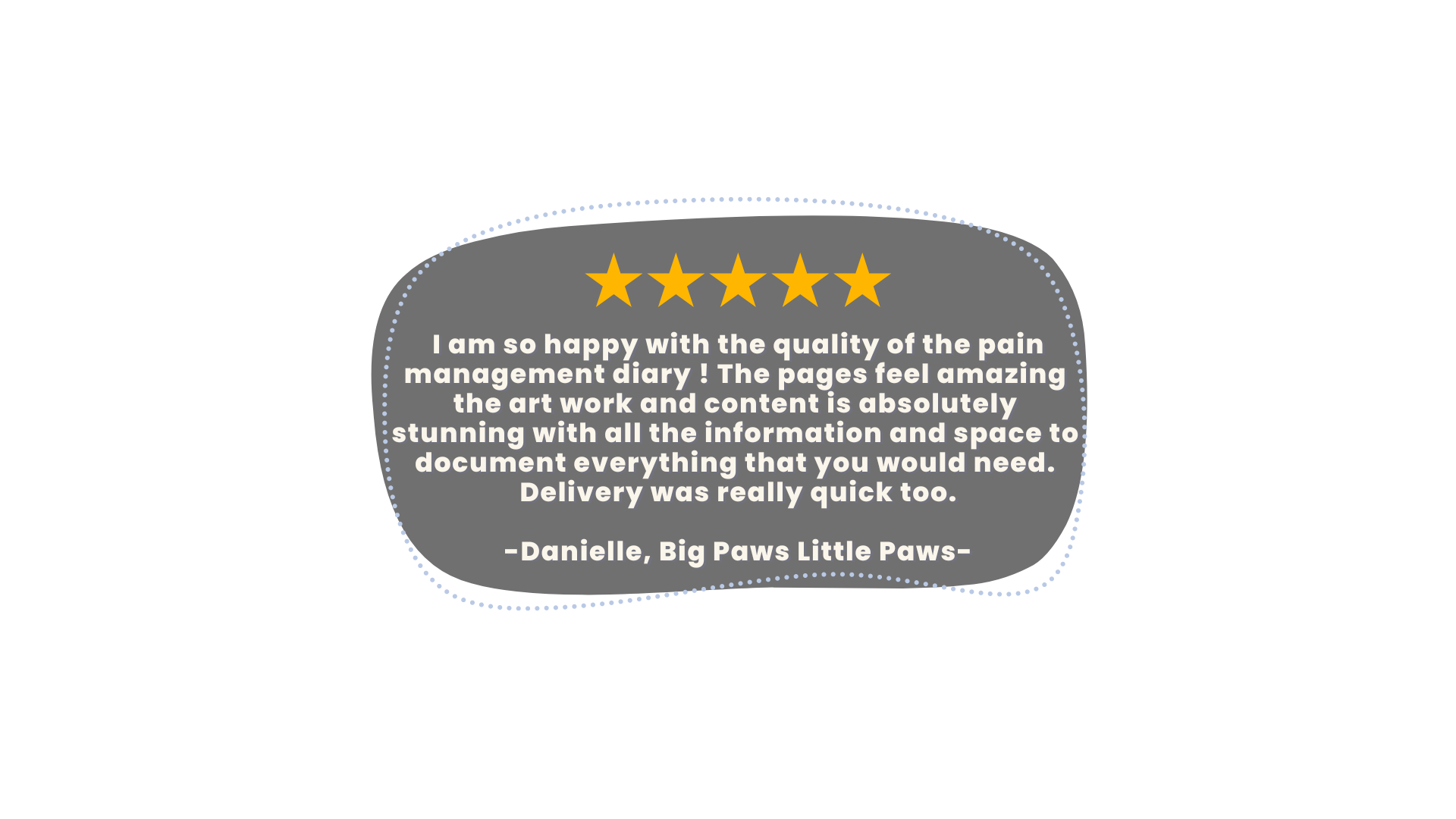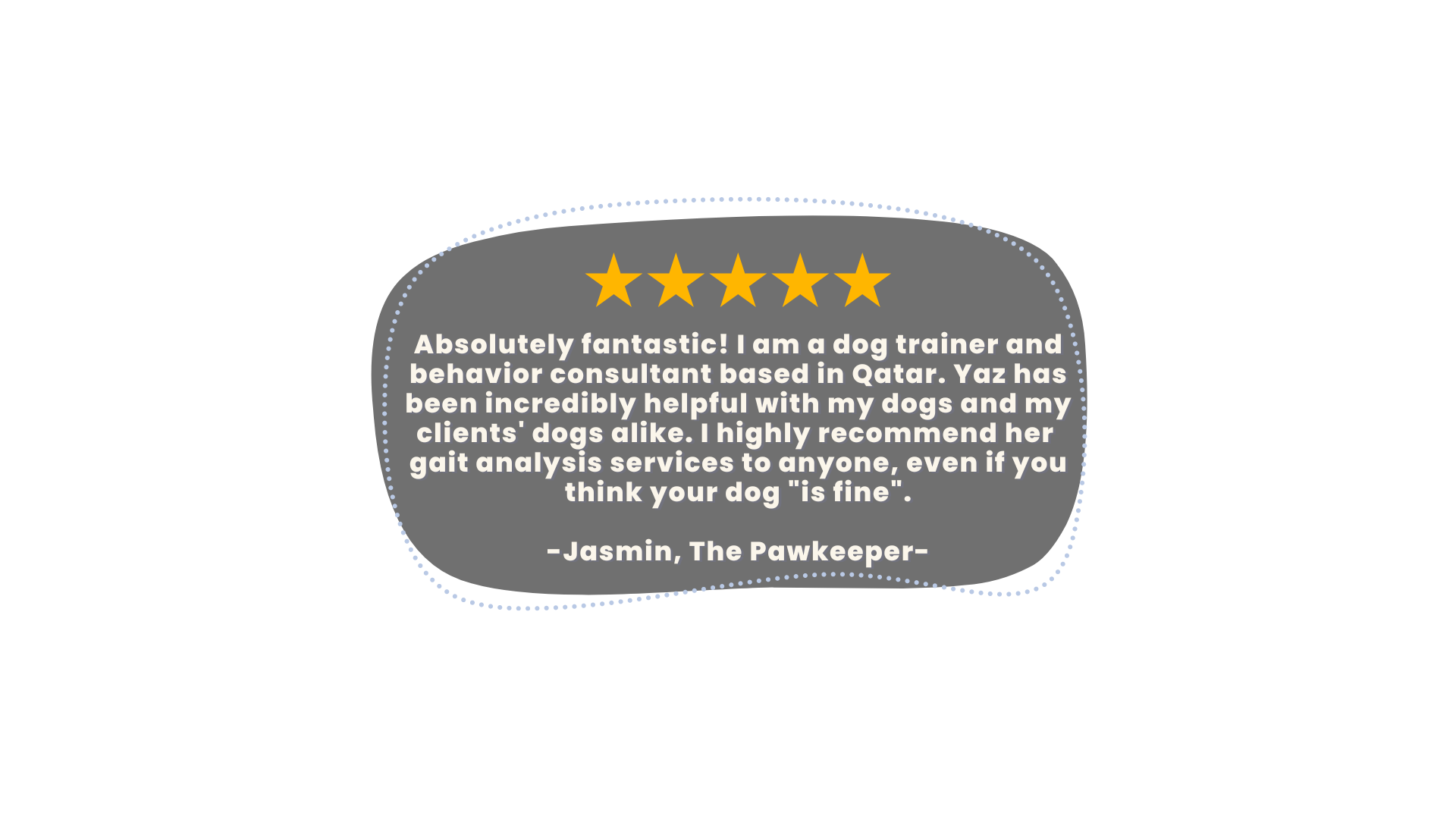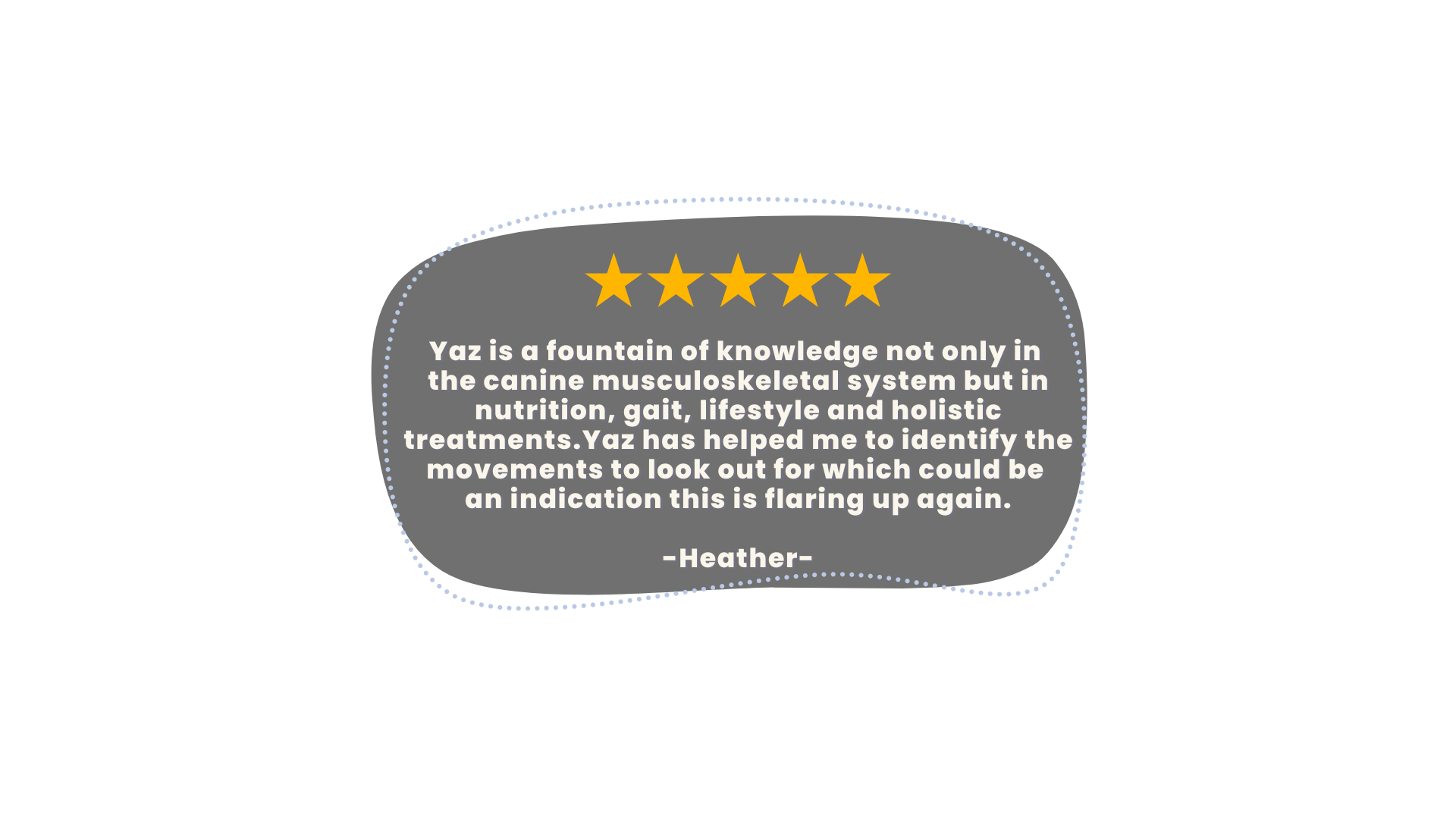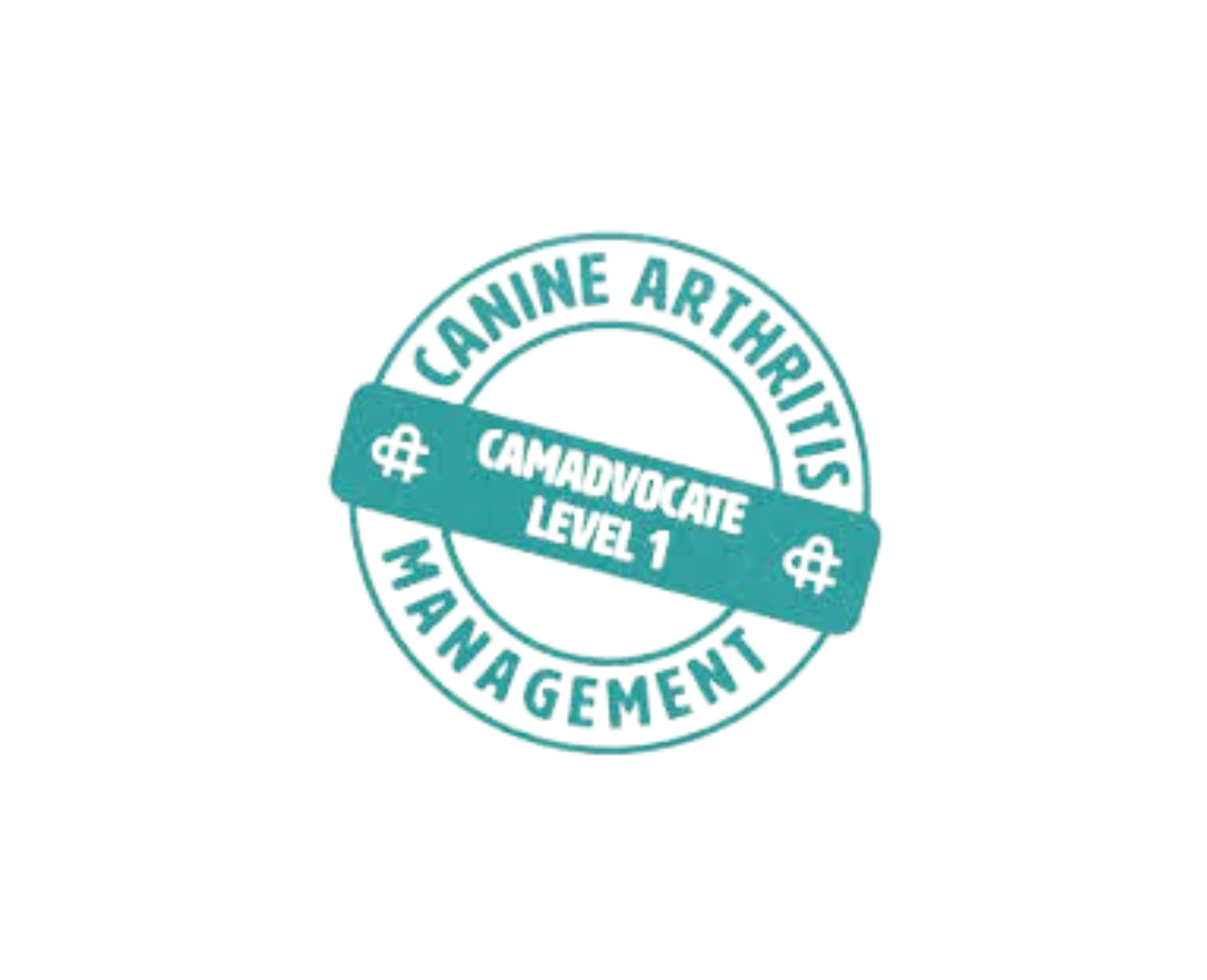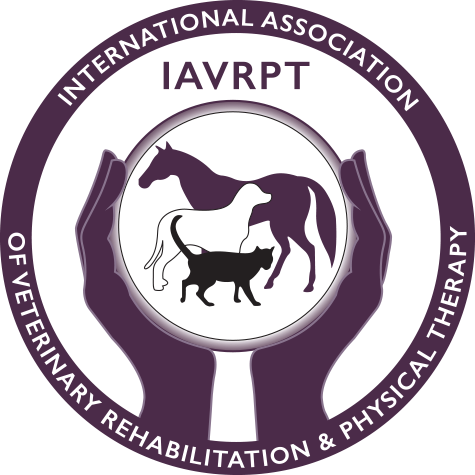By Yasmin Porritt
•
October 28, 2025
In this episode of Hop, Skip and a Jump, Yaz from Yorkshire Pooches Therapies sits down with Sarah from Totally Pawsome Dog Training to talk about the evolving world of ethical, force-free dog training and how behaviour and pain are more connected than many realise. Yaz and Sarah’s professional journey began when Sarah brought her German Shepherd, Mavis, to the Yorkshire Pooches clinic. That partnership soon evolved into a collaborative working relationship, helping dogs whose pain and behaviour issues often overlap. “Nine times out of ten, ” Yaz explains, “these things aren’t isolated, pain changes behaviour.” Sarah’s path into professional training started with a lifelong love of animals. Having worked with horses for years, her natural curiosity about behaviour led her to study to become a Dog Trainer. “It might have been a bit of a midlife crisis,” she jokes, “but it turned into the best decision I ever made.” Like many in the field, Sarah admits she still battles imposter syndrome, the feeling of never knowing enough. Yaz relates, noting the Dunning-Kruger effect, where the more knowledge you gain, the more you doubt your abilities. Both agree that support networks are vital. Sarah and her peers from her training course stay connected through their “virtual staff room” where they share advice, challenges, and plenty of laughs. When it comes to her work, Sarah’s passion lies in understanding the emotional side of behaviour. Her dog Mavis, a sensitive soul, has been her greatest teacher. “She’s taught me compassion, patience, and how much the smallest environmental change can affect a dog’s state of mind” Sarah says. Something as simple as a new floor texture can trigger anxiety, powerful reminders that every dog experiences the world differently. Yaz and Sarah also explore how training philosophies have evolved. Many owners still rely on outdated alpha or dominance-based techniques, often out of habit or lack of awareness. “We were raised that way,” Sarah admits. “But once you know better, you do better.” Both encourage positive reinforcement, rewarding desired behaviours rather than punishing unwanted ones. The pair also touch on affordability and accessibility. Not everyone can afford private training or therapy, and both professionals stress the importance of free educational resources and community support. “Having a team, your village of trainers, therapists, and vets around you is a luxury,” says Sarah. “But good information should never be gatekept.” One thing is clear: the future of dog care lies in collaboration, compassion, and curiosity. Whether it’s recognising pain before it becomes behavioural, adapting training methods, or empowering owners with knowledge, the goal is always the same — helping dogs live happier, healthier lives. Check out the full conversation with Sarah of Totally Pawsome Dog Training





